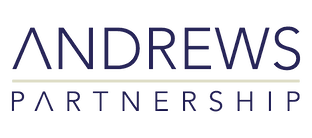INSIGHTS
Mid-2024 Asia Communications Check-in: Navigating Geopolitics, AI Integration and Team Capacity
As we reach the halfway point of what has been a fast and furious year, Andrews Partnership sat down with 30 Heads of Communications from across APAC to uncover their biggest challenges and opportunities.
Shifting geopolitics remains a primary focus
The geopolitical landscape is still undoubtedly top of the agenda and continues to have a profound impact on communications teams across the region. Shifting dynamics, whether related to the decoupling process between the US and China or the Middle East conflict, have necessitated a re-evaluation of public affairs and corporate communications strategies.
Heads of Communications told us they find themselves having to adopt a ‘Swiss Army knife’ approach to ensure agility in their response to a spectrum of challenges including regulatory issues, economic headwinds, cultural sensitivities, public sentiment, investor confidence and cross-border collaboration.
Communications teams said they are now also managing messaging to a broader range of stakeholders both internally and externally, with communications leaders taking on far more advisory roles to the CEO and the board.
“It requires a strategic approach that considers the delicate balance of maintaining relationships, managing reputational risks, and leveraging media opportunities,” said one Head of Communications in financial services.
As the unpredictable geopolitical landscape continues to evolve, communications teams should remain agile and informed to navigate the resulting complexities successfully. The ability to adapt and respond effectively will be crucial for the sustained success and reputation of both communications leaders and companies operating in this dynamic region.
The journey to integrate AI and reap the benefits continues
The significant advances in generative Artificial Intelligence (AI) tools and the opportunity to integrate them into communication workflows was unsurprisingly priority number two for communications leaders.
One Head of Communications stressed that they have spent the last 12 months trialing the numerous AI technology contenders to find the best fit for their content creation needs. AI tools have shown promising results for blogging and long-form content, but skepticism remains around their efficacy for press releases, with some communications professionals preferring to rely on traditional writing methods.
Communications leaders told us that AI has proven effective for generating internal columns and articles, offering a quick and efficient solution to what one leader describes as “the first and last mile” of content creation. They added: “The middle stage, which involves nuanced thinking and decision-making, still requires human intervention.”
When it comes to the benefits of harnessing AI, the initial expectation was that it would lead to significant cost savings, but the reality has been far more nuanced. While AI does reduce the time spent on content creation, the primary advantage for many teams has been the ability to produce more content more efficiently, and with greater effectiveness. “The emphasis is not on reducing costs, but on enhancing productivity and creativity,” remarked one leader.
A standout impact for communications leaders in APAC has also been the democratization of content creation in linguistically diverse teams. As one Head of Communications from a consumer brand said: “AI has leveled the playing field, allowing non-native English speakers to produce content with native-level quality.” AI not only enables more people to create content, therefore increasing overall productivity, it can also create a more equitable environment where everyone can contribute.
The ongoing integration of AI tools is a strategic opportunity for communications teams in Asia to enhance their operations and output with leaders citing time-saving, improved creativity and a consistent quality of communication — regardless of language barriers — as key benefits.
However, the consensus among the Heads of Communications we spoke to was that AI will not replace human creativity and critical thinking, but will serve as an effective tool to support and augment the daily work of communications professionals.
Leaders look to build capacity in their teams
Thirdly, APAC communications leaders told us that they were focused on strengthening their teams to enable them to succeed in complex and dynamic operating environments.
Building capacity in communications teams is essential to navigate the unique reputational challenges and intricate consumer and investor landscapes of individual countries, whether it’s Indonesia, Myanmar, Vietnam, India or any market in which they operate. This challenge can be exacerbated when teams are lean and also need to fulfill an increasing range of priorities and tasks.
One Head of Communications talked us through the three ways they are working to strengthen their team when faced with dynamic markets and a lean structure:
- Invest in training
Having assessed the team’s current capabilities and identified skills gaps, they were quick to implement training programs covering media relations, digital communication and crisis management. - Promote agility
Encouraging a culture of agility and building a more adaptable, versatile and resilient team where employees are cross-trained in different skills and can handle a variety of tasks. - Harness technology
With tighter budgets, trialing and implementing technology that automates routine tasks can free up team members to focus on more strategic, value-adding work.
This focus on upskilling and empowering staff is one we at Andrews Partnership increasingly hear from communications leaders as we move into the second half of 2024. Our training division, AP Advance, has recently partnered with many organizations to fulfill their professional development needs, including running in-person training in Singapore and bespoke in-house training for larger communications teams.
Andrews Partnership are the reputation experts, with offices in Hong Kong, Singapore and Australia working across Asia, as the leading specialist corporate affairs, communications and investor relations executive search firm. We excel at understanding each organisation's unique challenges and appointing the right talent, who make meaningful business impact.


